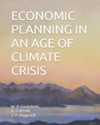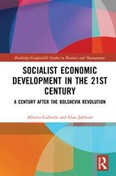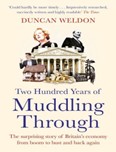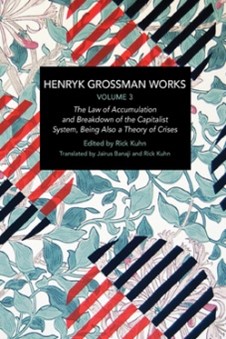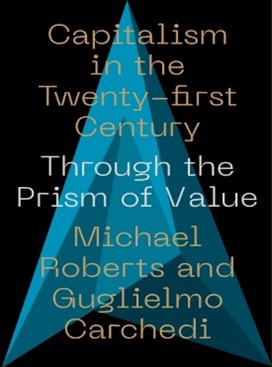Source > Michael Roberts blog
Every year at this time, I look back at any books that I have reviewed. I’ll start with Bradford DeLong’s book, Slouching towards Utopia, because this was considered the best economic history book of the year.
DeLong is regarded as one of the world’s most prominent Keynesian economists. I debated with him once way back in 2016 at the annual conference of the American Economics Association (ASSA 2016). In that debate, DeLong criticised Marxists like me for ‘just waiting for Godot’, (following the play by Samuel Beckett ), namely that we were saying that nothing could be done under capitalism to improve the world and we just had to wait for it to collapse. In contrast, he and other Keynesians won’t wait; we can solve the world’s problems with the right economic policies now.
Well, in his new book, DeLong seems a little less optimistic about that. DeLong claims that capitalism worked during the 20th century to improve the lot of humanity; despite two horrific world wars; incessant regional conflicts; and intensive exploitation of multi-national companies of the globe. But this “long twentieth century” ended in 2010, when the advanced capitalist economies were “unable to resume economic growth at anything near the average pace that had been the rule since 1870.” Apparently, the all-powerful capitalism of the 20th century has now slowed down to a crawl and utopia seems a more distant, ever-disappearing, prospect in the 21st century -shades of a long depression. And the problem is capitalism, after all, says DeLong: because it only recognises property rights and not the basic rights of humanity. What to do? DeLong says it is not to replace capitalism but instead, “governments must manage, and manage competently”.
The supposed Keynesian solutions to the world economic crisis continues to dominate mainstream economics. The latest attempt to claim that Keynes was really a radical critic of capitalism comes from Stephen Marglin, a longstanding member of Harvard University’s economic department. Arch Keynesian Larry Summers argues that we should “give more attention to Marxist scholars like Steve Marglin, whose book Raising Keynes deserves extensive debate.” It’s a stretch to call Marglin as Marxist, as Summers does. Even Marglin describes himself as a Marxist “only in the sense of not being anti-Marx.” ‘Marxist’ Marglin’s new book, Raising Keynes: a 21st century General Theory, argues that Keynes’ radical ideas have been distorted and submerged by mainstream neoclassical economics. Raising Keynes shows how and why the orthodox reading of Keynes is wrong and substantiates Keynes’s insight that, even if you strip capitalism of its warts, you still have a system which has no mechanism for reliably producing enough jobs. So “we need the government, not on an occasional, intermittent basis, but all the time, in the long run as well as in emergencies.”
How radical a break with traditional Keynesian policies is this? Not much. What is ‘Marxist’ Marglin’s policy solution to achieve full employment? Well, “the government must provide a visible hand to work in tandem with the invisible hand of the market.” So it is not the replacement of capitalist mode of production and the ending of the contradiction between private profit and social need. Instead, government must help capitalist production to work better. As Austrian School economist Joseph Schumpeter once commented, “[T]here are the attempts to Keynesify Marx or to Marxify Keynes….. It is in fact possible to enrich the meanings of both these authors by points culled from the other, (but) they are at opposite poles in matters that are of decisive importance analytically.” Rather than try to resurrect Keynes, as Marglin aims to, it would be better to let him rest in peace.
All the evidence from the recent COP27 international meeting on global warming is that the world is hurtling towards a climate disaster. I have argued that the proposed market solutions of carbon pricing and taxation or relying on the development of renewables won’t work while the fossil fuel industry is allowed to operate without impunity. Public ownership and global planning are only way out of the environmental disaster that is already with us.
And in their new book, Scottish Marxist economists Paul Cockshott, Alin Cottrell and Jan Philip Dapprich, entitled Economic Planning in an Age of Climate Crisis, take up this issue. And they spell out how planning, by replacing the market, would work.
The obstacle now is not the technical feasibility of planning the allocation of resources and labour to meet social needs, but the political obstacle of the class interests of the capitalist class. The book offers a further development of socialist planning to incorporate the climate crisis.
Can planning make a difference even in a single economy? That question raises the issue of the success of planning and existing ‘planned economies’. A new book entitled Socialist Economic Development in the 21st Century by Alberto Gabriele and Elias Jabbour claims to “offer a novel, balanced, and historically rooted interpretation of the successes and failures of socialist economic construction throughout the last century.” The book won the prize for best foreign book on China and the first book in Political Economy to win this prize, the Special Book Award of China, an annual award established by the State Press and Publication Administration of the People’s Republic of China. So it has certainly received the support of the Chinese authorities for its view of China’s ‘socialist characteristics’.
Indeed, the authors argue that China is a ‘socialist-oriented’ economy and state, very different from capitalism, either democratic or autocratic. “China’s economic success is the result not of capitalism but of its transition to socialism. It is a new social economic formation (SEF) that is beyond capitalism.” China and other countries like Vietnam and Laos are not like traditional ‘socialist’ states such as the Soviet Union, Cuba, North Korea or post-war eastern Europe. China has delivered a new social economic formation which could be called ‘market socialism’. And this is the basis of China’s phenomenal economic success, not the planned economy of the Soviet Union where little or no ‘forms of private property exist’. Instead, it is a socialist-oriented state with planning at the macro level, while capitalism and the market rules at the micro level in a fundamentally harmonious way. This new social economic formation is a model of the future for societies that have overthrown capitalism and are on the road to socialism.
As far as I can see, Gabriele and Jabbour ignore all the growing contradictions in the Chinese transition story. The ‘trojan horse’ of a large capitalist sector and an unaccountable CPC within the ‘socialist-oriented’ Chinese economy remain a serious threat to any transition to socialism. Indeed, there is still a significant risk of a reversal back to capitalism as the pressure of imperialist encirclement of the Chinese state proceeds over the next decade and as the pro-capitalist elements in the CPC mount a case for ‘opening-up’ the economy to capitalism.
Global warming is literally the burning issue of 21st century. But what has caused this exponential rise global temperatures? In a hugely best selling book in Japan, Marxist Kohei Saito analyses the relationship between capitalism and the planet, Marx in the Anthropocene: Towards the Idea of Degrowth Communism
The book’s message is stark and clear. Capitalism’s rapacious drive for profit is destroying the planet and only “degrowth” can repair the damage by slowing down social production and sharing wealth. Humans need to find a “new way of living”, and that means replacing capitalism. Saito’s book is subtitled: ‘Towards the idea of de-growth communism’. De-growth has become increasingly popular among many environmentalists and leftists. The proponents of de-growth argue that there are absolute ‘planetary limits’ and a fixed ‘carrying capacity’ that cannot be surpassed by humans if we want to avoid ecological collapse.
Here there’s no distinction between socially produced limits and natural limits. But degrading nature, exterminating species and threatening to destroy the atmosphere of the planet are the result of the contradictions to be found in the capitalist mode of production itself, not in some existential threat from outside the system. Increased rates of pollution and environmental degradation occur because capitalists pursue profits at the expense of the environment, not because of the technologies themselves. Socialists should distinguish between the instruments of production and their use under capitalism.
In a socialist de-growth scenario, the goal would be to scale down ecologically destructive and socially less necessary production (what some might call the exchange value part of the economy), while protecting and indeed even enhancing parts of the economy that are organised around human well-being and ecological regeneration (the use value part of the economy).
There were two other key issues exposed this year: what happens to the world of work after COVID and the digitalisation of the economy; and what is going to happen with the growing geo-political conflict between US imperialism and it allies and recalcitrant and rising economic powers like Russia and China.
On the first issue, John Michael Roberts (no relation) in his new book, Digital, Class, Work: Before and During COVID-19, argues that the pandemic has altered and fundamentally changed many social practices in society. But Roberts criticises those theorists who claim that this post-pandemic digital capitalism means that Marx’s theory of value and the exploitation of productive labour are no longer relevant to the nature of class relations and oppression at work in modern societies.
Some argue that new digital technology has ushered in novel types of exploitation that blurs what were once thought to be taken-for-granted boundaries, such as the boundary between work and consumption. Others are less concerned about new forms of exploitation and instead claim that digital technology creates new types of cooperation and ‘co-creation’ between workers and users. Roberts concludes both views are one-sided accounts of more nuanced and complex work processes. Roberts prefers an alternative framework based on Marx’s theory of alienated labour to digital labour and work. The capitalist mode of production still has its fundamental contradiction: between the forces and relations of production; and between the production of use-values and the production of surplus value. This contradiction continues in the digital age in alienated labour and dispossession from control over the means of production
On the second issue, Chris Miller’s book Chip War has become very relevant. The book won the Financial Times Business Book of the Year Award. In the book, Miller outlines the development of the semiconductor and how TSMC and a few other manufacturers came to dominate the global supply of advanced microchips. His main message is disturbing. Whereas during the ‘cold war’ between the US and the Soviet Union, nuclear weapons and the potential of mutually assured destruction created some sort of balanced truce that avoided outright conflict, in this ‘cold war’ between the US and China, there is no balance, but instead an unlimited race. Chip development and production is now the key area in the US attempt to isolate, weaken and reduce the economic and military power of China and other countries that deem to oppose US global interests.
And let me mention a short but pertinent book authored by Duncan Weldon, former senior economist at the UK’s Trade Union Congress. It’s about ‘British exceptionalism’. Called Two Hundred Years of Muddling Through: The surprising story of Britain’s economy from boom to bust and back again, Weldon describes the sorry story of British capitalism’s decline and fall. From the hegemonic power of the 19th century to the worst performing advanced capitalist economy in the 2020s. While the UK contains some of Western Europe’s richest areas such as the south-east of England, it also has some of its poorest such as the north east or Wales. “It’s really not much of an exaggeration to describe the UK, in economic terms, as ‘Portugal but with Singapore in the bottom corner’.” Weldon’s book gives us an absorbing account of the UK’s demise. Unfortunately, it does not offer any significant explanation of why the UK’s capitalist economy has fallen so low. For example, Weldon notes the so-called ‘productivity puzzle’ that many advanced capitalist economies are experiencing now ie low productivity growth. The UK is the worst performer here too. But Weldon struggles to explain why.
And let me remind readers of the new edition of Henryk Grossman’s masterpiece of Marxist economics. Rick Kuhn as the biographer and restorer of Grossman’s works has released another collection of his works. This time it is the long awaited first full translation of Henryk Grossman’s, Law of accumulation and breakdown into English. This was the most important, influential and yet most denounced of Grossman’s works. It recovers not only Marx’s primary explanation of capitalism’s economic crises and breakdown tendency but also his method in Capital. Last year, this new edition was published by Brill in expensive hardback version. Now it is available in paperback by Haymarket. I shall be participating in an international launch of this new edition with Rick Kuhn in January.
And last but not least, there is the publication of Capitalism in the 21st century by Guglielmo Carchedi and myself, by Pluto books. It’s been available for pre-ordering for some time but now is on demand from next week. The book covers the issues of crises, inflation, imperialism, the environment, technology and socialism ‘through the prism of value’. I hope to develop the ideas in each chapter in posts during 2023. And there will be some book launch meetings too.
The Anti*Capitalist Resistance Editorial Board may not always agree with all of the content we repost but feel it is important to give left voices a platform and develop a space for comradely debate and disagreement.
Art Book Review Books Campism Capitalism China Climate Emergency Conservative Government Conservative Party COVID-19 Creeping Fascism Economics EcoSocialism Elections Europe Far-Right Fascism Film Film Review Fourth International France Gaza History Imperialism Iran Israel Italy Keir Starmer Labour Party Long Read Marxism Marxist Theory Migrants Palestine pandemic Police Protest Russia Solidarity Statement Trade Unionism Trans*Mission Ukraine United States of America War




